
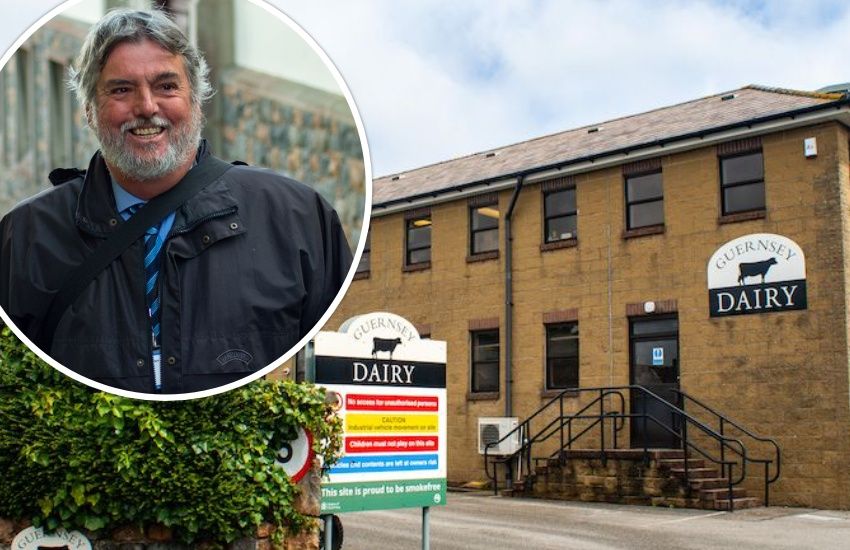

A "failure of policy" has been identified in the ongoing delays in approving and building a new facility to support the wider dairy industry in Guernsey.
Last week's Scrutiny hearing looking at the work of the States Trading Supervisory Board briefly touched on the Dairy, with Deputy Simon Fairclough asking a panel representing both political and non-political members of STSB about the delays in the building work, and any other supportive measures.
"The local dairy industry has recently reported it's ongoing struggles with rising costs," he said, before asking "what ongoing plans does STSB have to assist this important industry moving forward?"
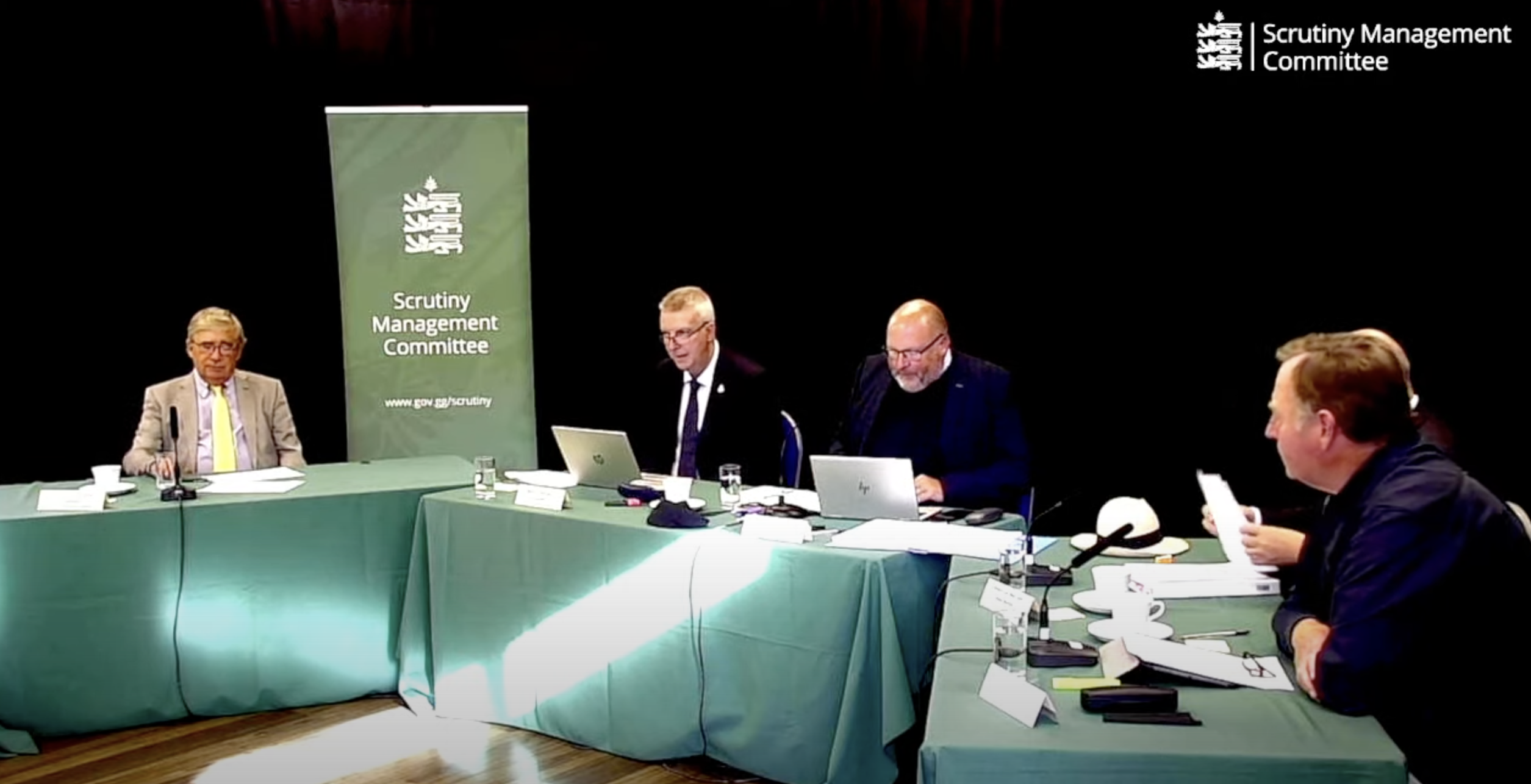
Pictured: The Scrutiny Management Committee.
Deputy Peter Roffey, as President of STSB said it's actually on the desk of the Committee for the Environment and Infrastructure to further progress with any plans for a new dairy building. He also said additional funding for farmers can only come from two sources - either directly from the States, or from consumers through paying more for milk and milk by-products.
"Over recent years there has been a very significant move away from taxpayer support for the industry, towards it being all the milk consumer," he said. "If the same level of taxpayer support was given now as was being given in real terms 20 years ago, we'd be talking about three point something million pounds going from the taxpayer. We're only seeing one million pounds at the moment.
"I think we are between a rock and a hard place because I think consumers feel they're being charged a great deal for their milk. We've got an old facility which is expensive and inefficient to run, and we could only pay the residual amount to the farmers so I think we need to talk with E and I about this."
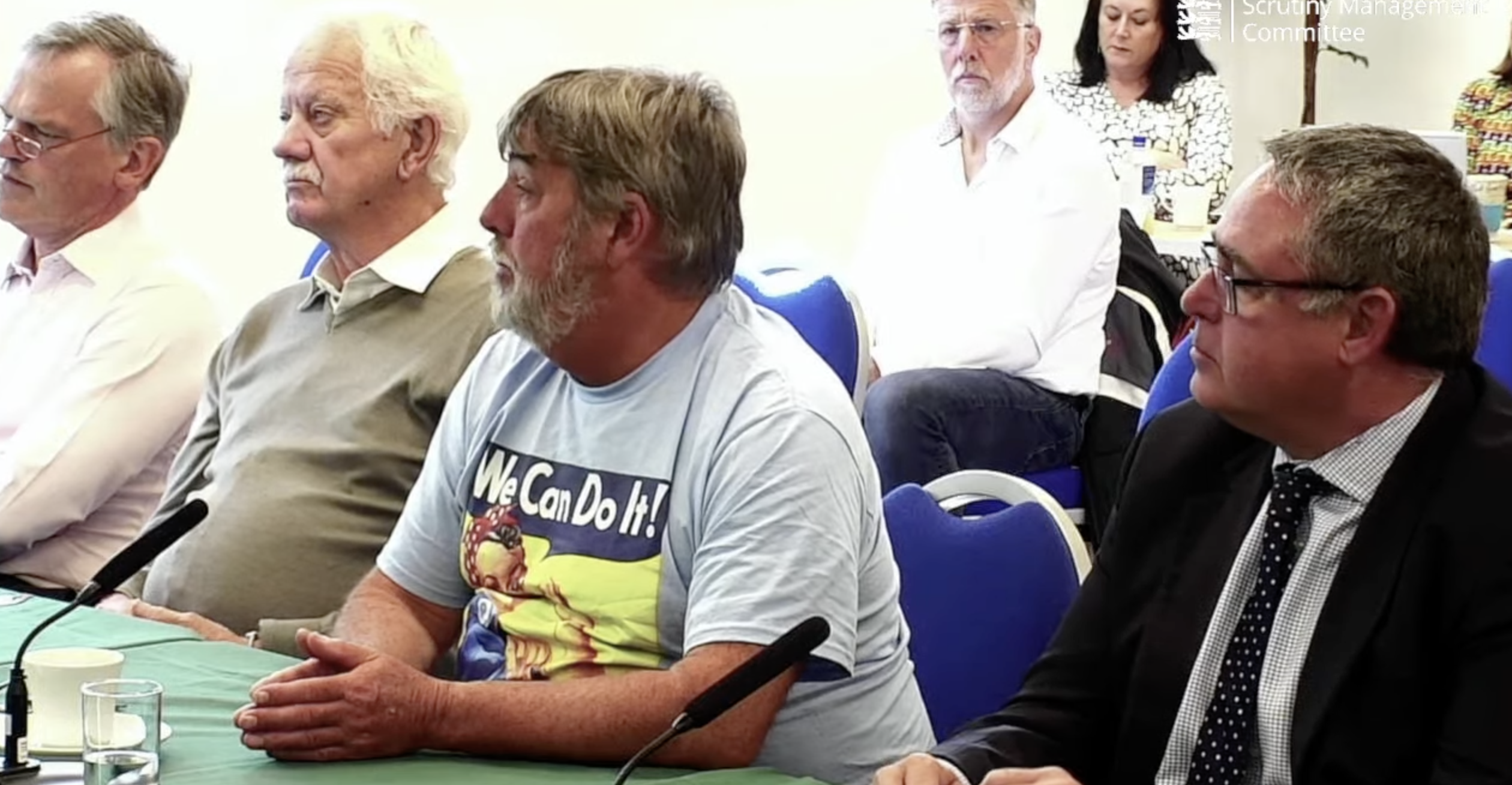
Pictured: The STSB panel.
Non-states member of STSB Stuart Falla was involved in previous plans for a new dairy, which were not granted capital funding and have been shelved temporarily. He said if that development had gone ahead, the running costs of a new dairy would be lower.
"We put forward plans for a new dairy and it didn't manage to get into the delivery phase of the government work plan. Had it got on to the delivery phase we'd be continuing on with getting to a new dairy and that new dairy would be less labour intensive, it would be more efficient, and therefore we could process milk and make other by-products more efficiently, and cheaply, and therefore we would see that whole part of the business run to produce a surplus. Now, whether that surplus then goes to the farmer or whether it then becomes paying back the States for providing the capital is part of what needs to be discussed. Or reducing milk prices, so therefore the surpluses has to be decided at a political level.
"The problem comes, as I'm sure you're aware, is that if the price of milk goes up to too high a level then crashes, it might amount to why sourcing built from the UK isn't the solution, plus we're competing with milk alternatives. What we're very keen on is making sure that event doesn't come about."
Continuing to describe various hurdles faced by STSB and E and I in modernising the dairy industry, Mr Falla said ideas had been discussed at a previous Scrutiny hearing.
"It still isn't fully fit for purpose because the island hasn't decided exactly what it wants from its milk, its farming community, and that decision I believe P and R are working with E and I on a policy of what they want from the industry, what size it should be, what it gives back to the island.
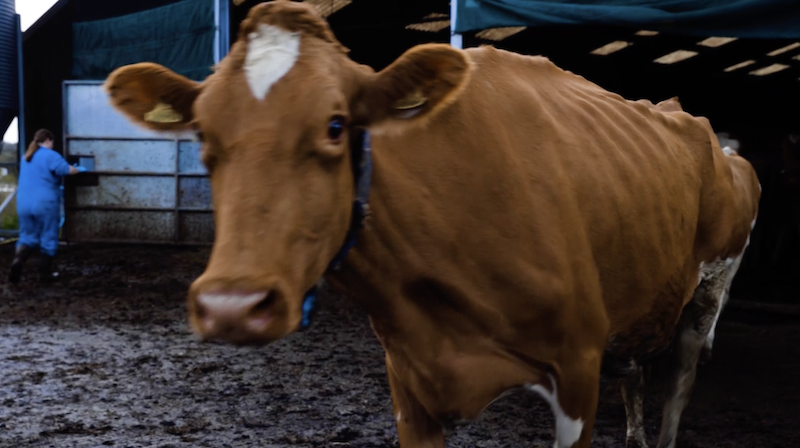
Pictured: A Guernsey dairy cow.
"We believe it gives back a great deal in respect of the landscape that it supports, and the Guernsey breed of cattle that it supports as well, because it is the home of that breed so we're very clear as to what the objectives are in mind, however that comes at a cost.
"Now 20-odd million, 25 million is an expensive piece of kit to put in there which we can't give a financial return on, but that is almost the cost of us maintaining that industry, so the States of Guernsey, you must decide whether they wish to continue to support that industry and the whole history that goes with it."
One ongoing issue faced by those running the dairy is the decades old laws which stipulate that every litre of milk produced locally must be bought by Guernsey Dairy. It can't all be processed and sold, especially in the face of declining milk sales as alternatives have increased in popularity.
Deputy Roffey said all of these issues need to be addressed.
"We need to decide what the dairy industry is for and if it's producing excellent milk, which it does, I think it's better than anywhere else, but I don't think that is the main reason.
"The main reason is that if it wasn't there, what would there be instead? If there was no dairy farming what would the habitat be like? The appearance of the island? If you think about getting everything go wild it would be great for nature but actually a lot of people, even if they don't drink milk, they are benefitting from the activity of farmers.
"There needs to be a discussion over the balance of where the financial support comes from, because our farmers...there's no way they can be head on with farmers elsewhere. We're a cottage industry enabling the agricultural industry, which enables the countryside, so I think, although I'm normally defending the STSB saying everything needs to be as business like as possible, I think that this goes beyond just a business in this particular case."
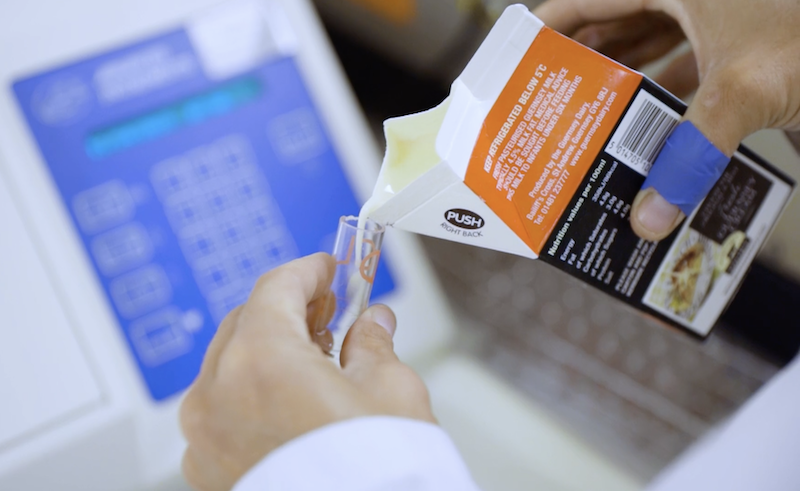
Pictured: Many hygiene standards are in force within the dairy industry.
Deputy Fairclough described these delays and uncertainties as a "failure of process" and said that "a significant amount of money has already been spent on the development of a future dairy". Deputy John Dyke said the circa £25million price tag for building a new dairy seems high though.
Deputy Roffey agreed but said it needs to be looked at in isolation and not in comparison to other, very different developments.
"...production facilities tend to be quite expensive and the hygiene requirements are fairly extreme, and if one of the things that's driving us now is environmental health then we've got questions about how long our current facility can...they do meet all the standards now, I want to stress that, but it's at great expense and difficulty that that's happening. So, yes we will try and drive down the cost as far as possible but I think there's some unrealistic expectation about that.
"I have some figures comparing with office blocks, and office blocks don't have to make anything like the same sort of standards that we do so expecting the same price per square meter is just fantasyland."
Preferred sit chosen for new dairy
Farmers to benefit from milk price rise
Guernsey Dairy wins prestigious taste awards
Comments
Comments on this story express the views of the commentator only, not Bailiwick Publishing. We are unable to guarantee the accuracy of any of those comments.